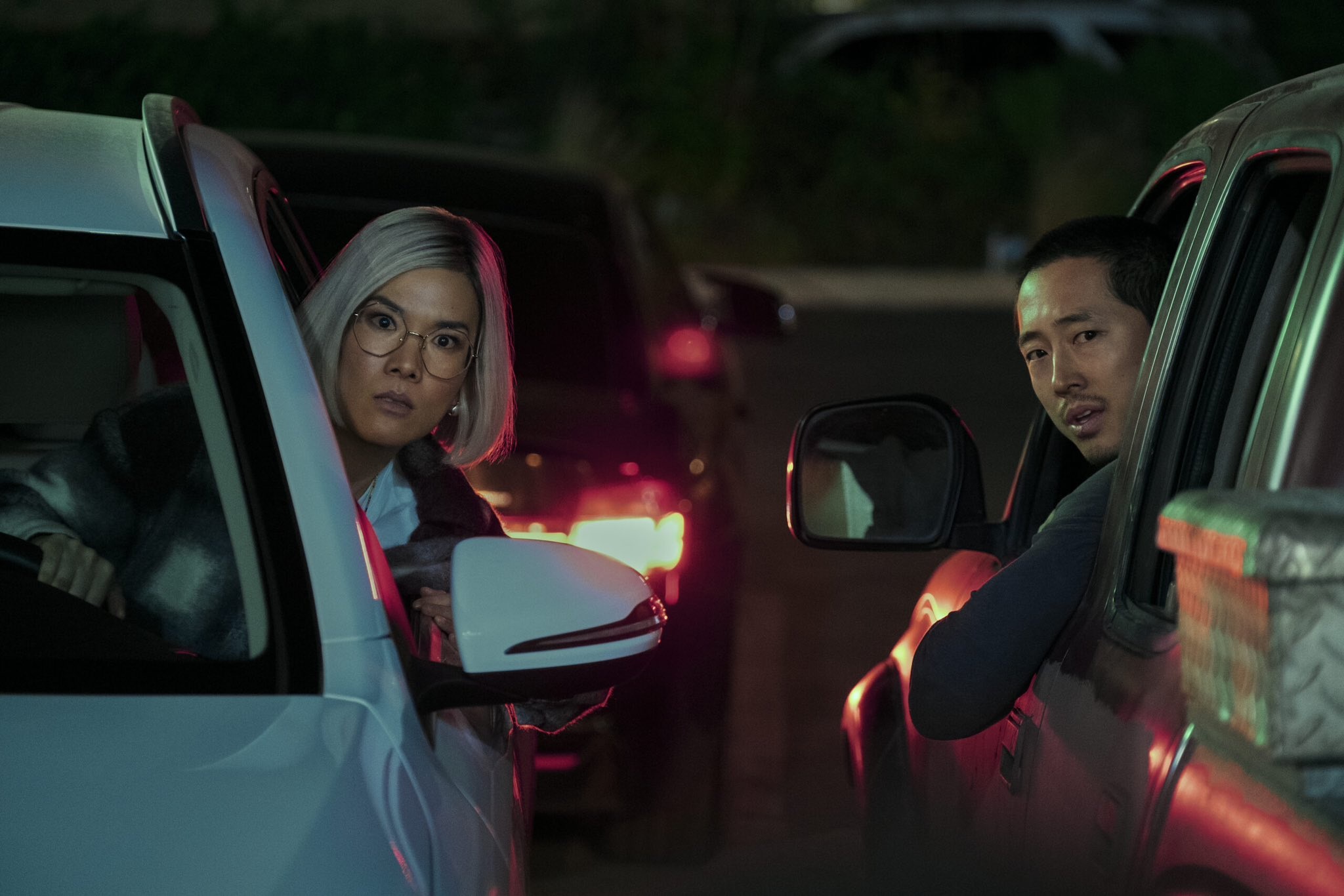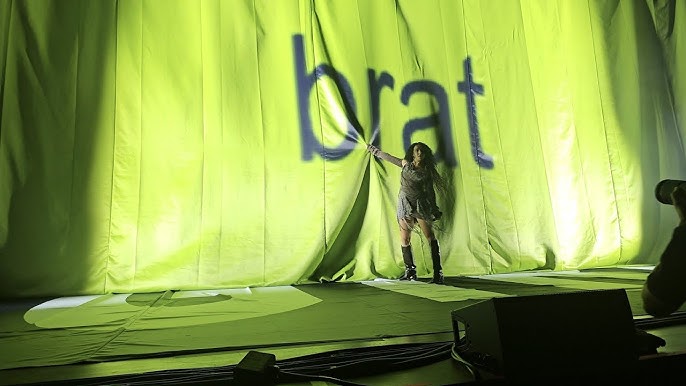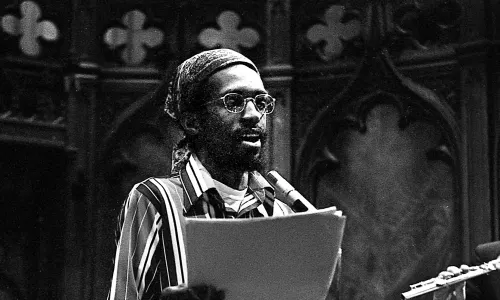“Beef” on Netflix Is a Searing Slice of Asian American Anger

This article does not contain spoilers for the major developments of “Beef,” but does contain plot information some may consider spoilers.
They were both having pretty bad days.
In the opening minutes of “Beef,” a gripping new series produced by A24 and released on Netflix on April 6, 2023, we witness how mundane irritations escalate into all-consuming conflict. Created by Lee Sung Jin, who also wrote or co-wrote five of its 10 episodes, the show’s acerbic, pissed-off sensibility breaks new ground for Asian American media.
First, we meet Danny Cho (Steven Yeun). Danny is caught in the everyday hell of struggling to fish a receipt from a pocket so that he can return a number of gas-powered grills at Forster’s, a home-goods store. The cashier seems fed up with him, and the customers behind him in line are getting impatient, so Danny resigns himself to keeping the grills.
As Danny sits in the store’s parking lot in his beat-up pickup truck, his seatbelt snags when he tries to put it on.
“It’s always fuckin’ something,” he mutters to himself.
It’s one of those days where nothing seems to go his way. As he backs out of his parking space, Danny almost backs into a gleaming white SUV. The driver honks. Danny yells back. The SUV’s driver flips him off. Danny snaps. He tails the SUV down the Los Angeles freeway, weaving in and out of traffic until he eventually gets himself stuck, attempting to cut through a curbside planter on a ritzy suburban block. But as the SUV drives away, Danny frantically memorizes its license plate number, muttering it to himself over and over. Rather than ending, Danny’s obsession has just begun.
That breathlessly tense opening sequence sets the stage for an all-consuming rivalry that will span the 10 episodes of “Beef.” Danny, we learn, was having not just a bad day, but a bad few months or even years. His contracting company is struggling to attract clientele, and his cryptocurrency-obsessed slacker younger brother, Paul (Young Mazino), isn’t much help. Danny is faced with the pressure of making enough not only to support himself, but to bring his parents back to the United States after a business failure years prior that forced them to move back to South Korea. Danny is so close to the end of his rope that, as we learn soon after he returns home, he was planning on using those grills to kill himself via carbon monoxide poisoning. This feud, in a twisted way, has given him one thing to live for.
On the other side of Danny’s ire is Amy Lau (Ali Wong). A successful entrepreneur living in a lavish house, Amy appears to live a life that is the polar opposite of Danny’s barebones, working-class setting. But she too is overwhelmed and teetering on the edge. Months of negotiations around selling her plant shop, Kōyōhaus, have eaten up whatever free time she had. Though her husband, coddled artist George Nakai (Joseph Lee), helps with caring for their behaviorally-troubled young daughter June (Remy Holt), he isn’t helping financially. His original art isn’t selling, and he won’t sell more famous pieces by his late father, a more well-known artist. What’s more, Amy has a sneaking suspicion that George is unfaithful, and his new-age aphorisms and couples counseling-derived suggestions don’t do much to soothe her razor-wire nerves.
What truly sells the magnetic dark comedy of “Beef” is the complexity and charisma with which Yeun and Wong embody their respective characters. Yeun continues to cement his reputation as one of the best actors working today, bringing to Danny a rawness and grit that’s miles from other acclaimed performances of his, like the slick, mysterious Ben in “Burning” or the put-upon patriarch Jacob in “Minari,” for which he was nominated for an Academy Award. The show’s true MVP, though, is Wong, who embodies Amy with a veneer of cheery professionalism and a swirling, grim vortex barely concealed behind her eyes. It’s a scarily intense dramatic turn from an actor better known for comedy, one reminiscent of Bill Hader’s similarly chilling tragicomic work on HBO’s “Barry.”
The prevailing mood of “Beef” is rage, one that’s deep and all consuming. While at the show’s outset, Danny and Amy try to go about their lives, they quickly begin sabotaging one another, unable to let go of a grudge. As their obsessions intertwine, Yeun and Wong are electric in their prickly chemistry, to the point that we aren’t sure whether we want to see Danny and Amy hook up or kill each other. Whatever the dynamic is, it’s one you can’t look away from.
Beyond its merits as a piece of entertainment, “Beef” is also refreshingly original as a piece of Asian American media. The show is free from the more common conversations that appear in films and shows about Asian Americans, from immigrant assimilation to generational culture clashes. Instead, the show depicts a vision of second- and third-generation Asian America, established in this country yet still working through its neuroses.
Many of the show’s details are culturally specific. We see Jacob try to find himself by attending a Korean church. Amy wrestles with the emotionally buttoned-up upbringing her parents, a Chinese American Midwesterner and a Vietnamese immigrant, left her with, in contrast to George’s more touchy-feely Japanese artist parents. There are references to the fraught culture around interracial and inter-ethnic relationships, as Danny expresses surprise that Amy’s husband is Japanese and warns Paul against dating white women, and Amy muses on whether to use a white co-worker’s photos during an attempt to mess with Danny by catfishing Paul.
Beyond that, “Beef” speaks to a greater sense of frustration and alienation among American-born Asians, remarkably reminiscent in tone of “Better Luck Tomorrow,” a 2002 film that screened at Wesleyan last year as part of Asian American and Pacific Islander (AAPI) Heritage Month. Despite their differences, Danny and Amy have both worked themselves to a mental breaking point, the result of upbringings that prioritized financial success and ignored emotional well-being. We scoff as Danny brushes off the notion of seeing a professional about his troubles by repeatedly claiming that “Western therapy doesn’t work on Eastern minds,” but as we see endless therapy sessions fail to remotely calm Amy’s inner turmoil, we also consider whether he has a point.
As the show’s feud progresses, stakes escalate, rising from petty grievances to nail-biting life-or-death situations. Its mostly grounded style even dips into surrealism, externalizing the maddening nature of a situation that began as a car honk and now threatens to unmoor the lives of not only our two protagonists, but everyone around them. Yet “Beef” walks a precise tonal tightrope. Amid the grimness and tension, there are moments of quiet melancholy, heartwarming community, and laugh-out-loud humor, all deftly woven together by Lee and his team of writers and directors. “Beef” is a rare show that is not only relentlessly entertaining, but feels like a watershed moment where a new pop culture sensibility is about to be born.
Oscar Kim Bauman can be reached at obauman@wesleyan.edu.








Leave a Reply